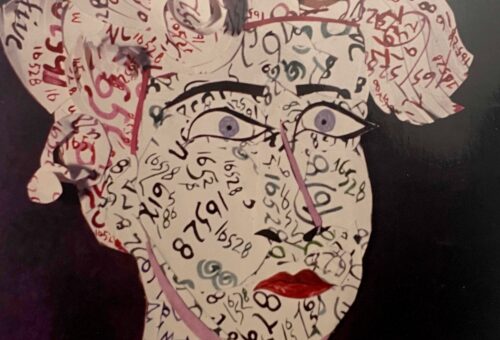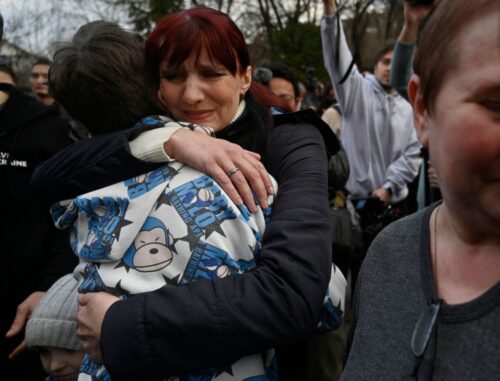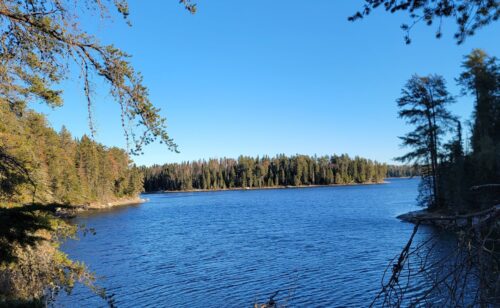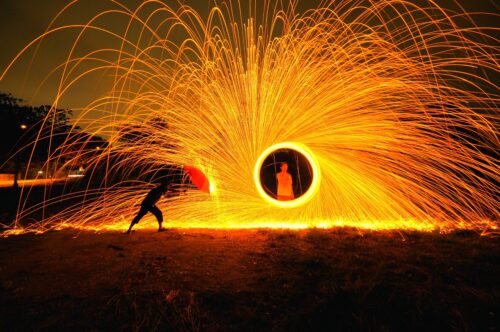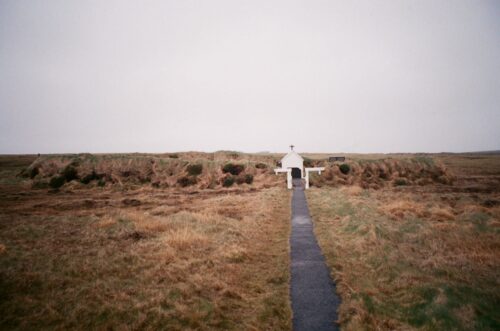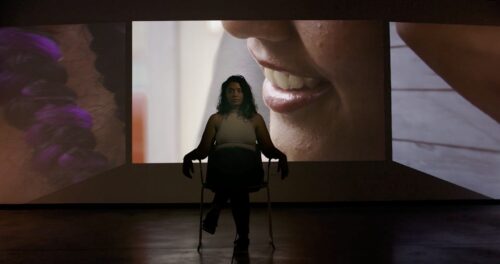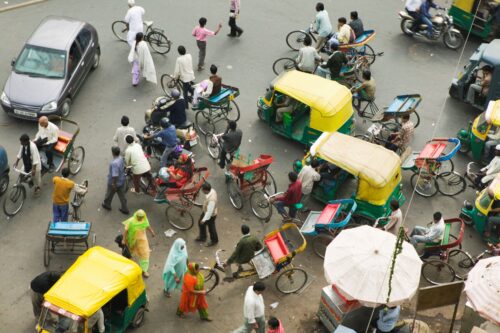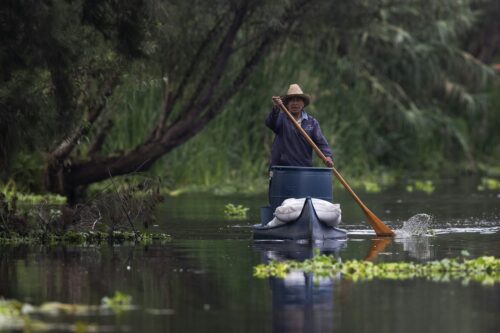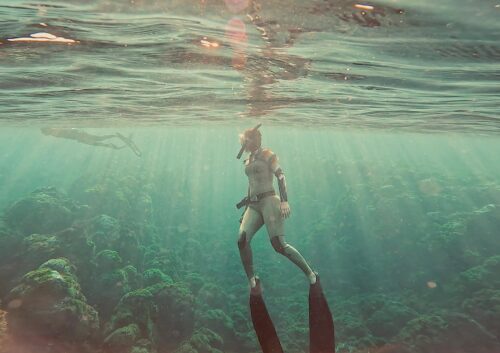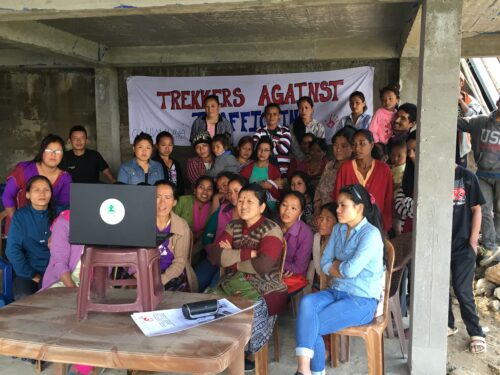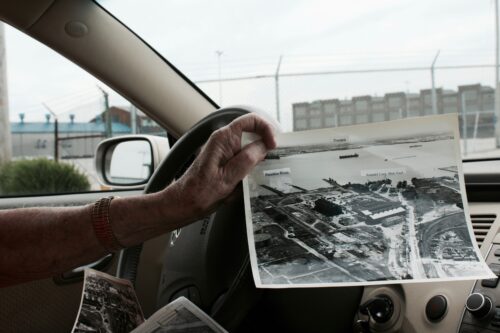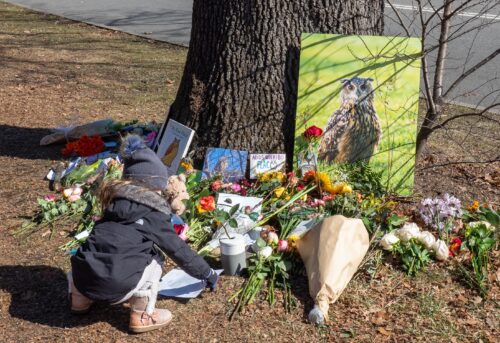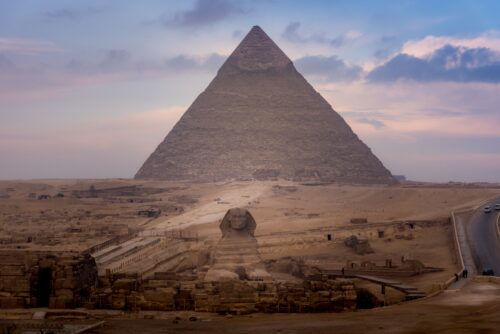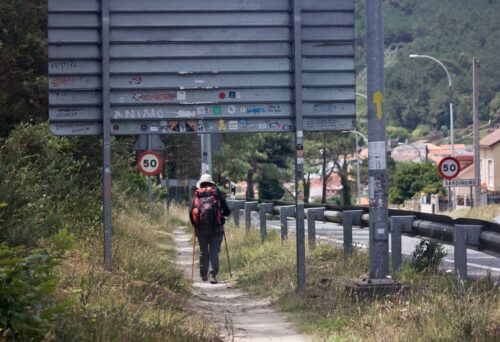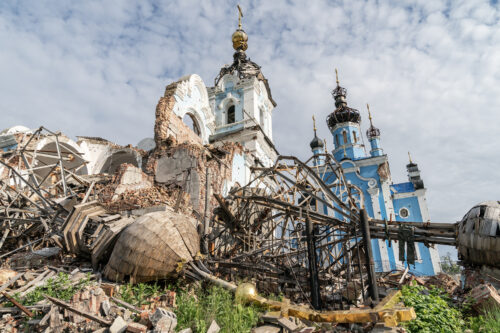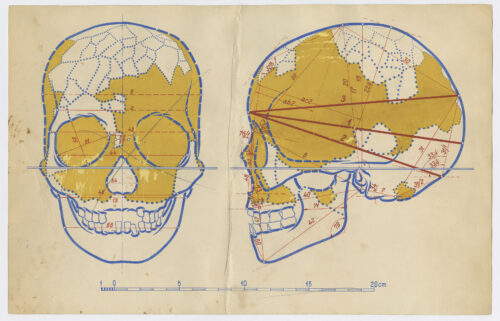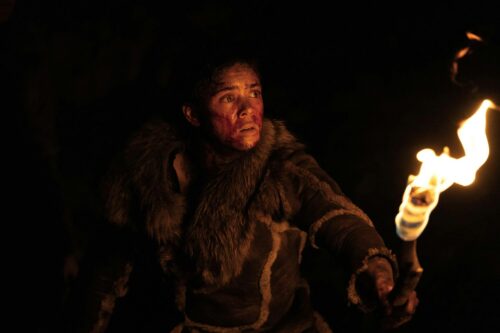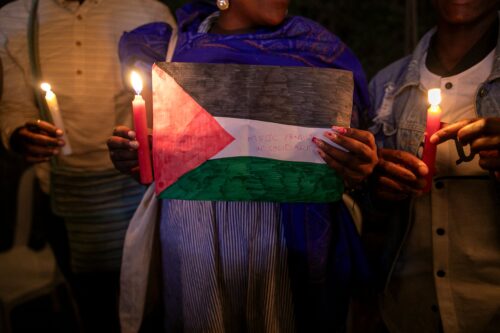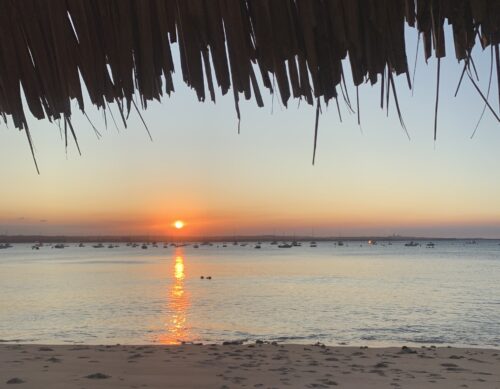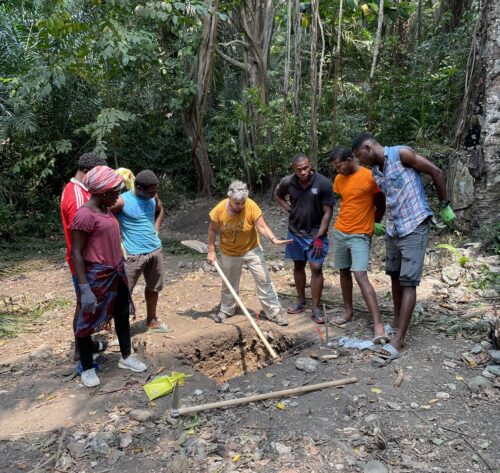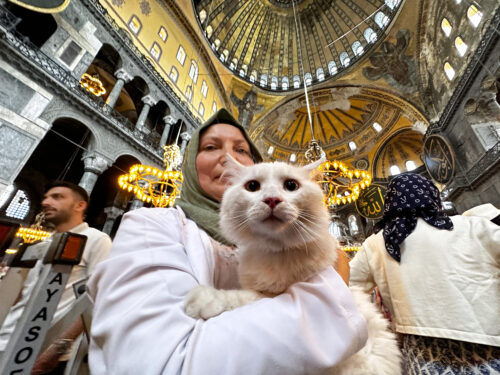5 Questions About the History of Humanity
In this live interview, archaeologist and author David Wengrow discusses his New York Times bestselling book The Dawn of Everything: A New History of Humanity (co-authored with the late anthropologist David Graeber).
Watch a LIVE 25-minute Q&A with archaeologist and author David Wengrow to discuss his New York Times bestselling book The Dawn of Everything: A New History of Humanity (co-authored with the late anthropologist David Graeber). Learn about how assumptions about social evolution such as the development of agriculture and the origins of inequality are being challenged to reveal new possibilities for understanding human history.
>> YOLI NGANDALI: Hello, welcome everybody. We will just wait one moment before we get started. Come on in. Come on in, just another moment. Welcome, everybody, just one more minute before we get started.
All right. I think that that’s good. Hello and welcome, everyone. My name is Yoli Ngandali, and I’m the Media and Public Outreach fellow for SAPIENS. I am here live with Dr. David Wengrow. David Wengrow say professor of comparative archeology at the Institute of Archeology at University College London and has been a visiting professor at New York University.
He is the author of several books including, he is the author of several books including the Origins of Civic Life, Origins of Monsters and What Makes Civilization? David conducts archeological fieldwork in various parts of Africa and the Middle East and now today he is here with us to talk about his New York Times best selling book, The Dawn of Everything: A New History of Humanity.
But, before we get started here, I would like you to encourage you to click the link in the chat to join our SAPIENS newsletter. This newsletter delivers news stories about humans and our world every Friday. Also, if you have any questions for David, add them using the Q&A function at the bottom of your screen and we will try to answer them at the end.
So here we go.
Hello, David, welcome. Thank you so much for joining us today.
>> DAVID WENGROW: Hi, Yoli. Good to meet you.
>> YOLI NGANDALI: Excellent, excellent. Let’s get right into it. So congratulations on the success of Dawn of Everything. What a large undertaking it is to rewrite the history of humanity. How did this book come about?
>> DAVID WENGROW: Well, not quite like that. Actually it’s funny you should ask on SAPIENS which I understand is linked to the Wenner-Gren Foundation. And one of the things we did not do is apply to the Wenner-Gren Foundation for a nice big grant or to any other foundation which is a pretty standard academic route these days.
You think you have a big blue skies idea and a big collaborative project. So the first thing do you is rush to put a grant together. We didn’t do any of those things. So I guess the best way to describe our approach would be old-school.
>> YOLI NGANDALI: Yes.
>> DAVID WENGROW: Which is old-school professors who realize as an archeologist and an anthropologist our fields were not talking to each, but we were talking to each other and we were finding out all these things that had happened in our respective fields that the other guy wasn’t aware. And trying to figure out if these things were going on in two closely related fields.
We are not even talking to each other. Then what about everything else? Isn’t it about time that we tried to start pulling together some of these facts and findings and actually telling people not just another n other fields, but just in people in general some of the incredible things that have come out of archeology and anthropology over the last 20, 30, 40 years, the development of human societies that most people are just not aware of.
>> YOLI NGANDALI: Mm-hmm. When you say “old-school,” that’s just pen and paper, sit down and go for it?
>> DAVID WENGROW: A lot of pen and paper, actually. David in particular had these beautiful leather-bound notebooks. So you would be having a chat over lunch or a drink or something and he would be scribbling down very, very old-school lots of e-mails as well.
But just a lot of conversation. I heard recently, I’m a bit behind the curve on this, about the so-called slow movement in academia. Have you heard about this?
>> YOLI NGANDALI: No, not really. What’s —
>> DAVID WENGROW: The philosophy, the academic research would actually benefit from slowing down, less deadlines, less quantification and more time to let our ideas bubble up and only when they are mature to try and put them out there.
I only heard about this recently, but actually in practice it’s pretty close to the way we went about this project.
>> YOLI NGANDALI: Mm-hmm. And that happens between both of you, right and putting those ideas together and stuff together, right?
>> DAVID WENGROW: Yeah, and at funny times because you know professors’ schedule in a big university actually doesn’t leave that much time for those kind of exchanges anymore, which could be a little frustrating. So we would often find ourselves just doing it for pure pleasure outside ours.
>> YOLI NGANDALI: Right.
>> DAVID WENGROW: Strange hours in the morning and things, which is partly why it took ten years on and off.
>> YOLI NGANDALI: Oh, wow, wow. Well, that is wonderful. Let’s get into a little bit more. So what are some examples of the entrenched stories about the rise of civilization, cultural development still going around anthropology and archeology today?
>> DAVID WENGROW: Oh. Well actually I mean, one thing that really struck us is that real archeologists and anthropologists like ourselves are not generally telling those stories anymore. It’s been a while. It’s been a couple of generations since archeologists and anthropologists are actually the ones writing those kinds of books, the ones we learn in about the history of our subject, Man makes Himself, What Happened In History.
We used to do this. There used to be this dialogue about what it means to be human about this growing body of evidence, not just philosophical speculations. But that seems to have ground to a halt. But in the meantime, many people from other disciplines, other fields or just people with an opinion about the broad sweep of human history are still writing those kinds of books.
And they are incredibly popular. So there’s a huge public interest, but as archeologists and anthropologists, it’s like we are not quite engaging. As a result, when we started looking at those other books which are often very preoccupied with questions about civilization and inequality, it’s really staggering how little of the information they actually make use of.
Something like 90 percent of the data we actually have about early human history just doesn’t feature in the kind of books that fly off the shelves and are supposed to be telling us about big story of human history. So we decided to throw our hat in and say, you know, we really want to try and do something about this.
>> YOLI NGANDALI: Mm-hmm. Yeah, what are some of those stories that archeologists do tell?
>> DAVID WENGROW: Well, the kind of things they tell each other, fascinating debates about hunter-gatherer burials in the Ice Age that look sort of rich and aristocratic in a period when most evolutionary anthropologists would say well, there shouldn’t be any aristocracy because they are all living in small egalitarian bands.
That’s a fascinating problem. What’s that all about? You have archeologists in the U.S. who are experts on the strangely named Archaic Period in which you have incredible monuments like Poverty Point down in Louisiana, great hunter-gatherer metropolis from three and a half thousand years ago.
But you pick up a general book on human history and it says everyone lived in small bands until agriculture.
>> YOLI NGANDALI: Right.
>> DAVID WENGROW: It makes no sense. In Japan, you have 10,000 years of spectacular sites. These are prerice farming cultures. It’s like people, it’s there, but nobody wants to see it or at least nobody’s pulling it together to ask what are the implications of all that?
And that was one sort of major point we started with. Another one was about cities and what happens when human societies scale up and populations get more dense. There’s a lot of theorizing about this. But it seemed to us that some of the most interesting empirical information wasn’t really breaking through into the theoretical frameworks.
So there’s still this kind of prevailing idea that as human societies grow larger, they inevitably become more complex. And the complexity means hierarchy.
>> YOLI NGANDALI: Right.
>> DAVID WENGROW: It means central organizations of management, forms of monarchy or other authoritarian rule. And actually we have a lot of sites and settlement patterns in different parts of the world which don’t suggest those things. And they have been regarded as anomalies like these prehistoric so-called mega sites north of the Black Sea in Ukraine.
But if you look globally, you see the anomalies are now so numerous that they are actually starting to tip the scales.
>> YOLI NGANDALI: Right.
>> DAVID WENGROW: And we have almost as many cases of early cities which don’t exhibit signs of monarchy and authoritarian government and central administration as we have ones that do. So something there needs to change conceptually. And it seemed to us that the information was out there, but kind of locked up in scientific journals and regional specialisms and subfields and really needed pulling together.
So you know, by talking to colleagues who are experts in all these different areas, getting our ideas slowly out there, giving seminars and public talks, writing academic research papers, we started to get a sense of what the emerging picture might look like for a new history of humanity which just takes all the stuff into account. Doesn’t try to unsee it, you know?
>> YOLI NGANDALI: Right. Can you move your microphone just a little bit closer?
>> DAVID WENGROW: Mm-hmm.
>> YOLI NGANDALI: That would be really great. I would appreciate that.
>> DAVID WENGROW: If I can. Here we go.
>> YOLI NGANDALI: Oh, okay.
>> DAVID WENGROW: There we are. Falling off the table.
>> YOLI NGANDALI: Yeah, thank you so much. And I totally understand what you mean. We’re still in a lot of archeology undergrad classes talking about, you know, bands and tribes and these things in these ways that don’t necessarily give us a fuller picture of the different ways that —
>> DAVID WENGROW: I know. I have had this from my own students since the book came out. They say David, why are we being told this stuff which isn’t true anymore? You know.
(Laughter)
>> DAVID WENGROW: And there’s a real question there about the curriculum, and not just the college curriculum, but high school curricula and what we teach kids about human origins, human societies.
>> YOLI NGANDALI: Right, right. Well, without giving away too much of the book, what are some of the new insights about alternative forms of social organization and other ways of living in the past?
>> DAVID WENGROW: Well, one of them is we really have to do away with this idea that there was a thing called the agricultural revolution which changed everything for all time and nothing could ever work the same way after it happened. As if nothing happened in history before the arrival of crops.
You know, we know as archeologists whichever part of the world you work in that this is just nonsense. But what we try to do in the book is really show the implications of that, the implications of accepting that long before agriculture, you have a whole variety of types of societies, social experimentation, going on in different parts of the world.
Some of it looks quite egalitarian or hierarchical. Private property, slavery and the opposite way back in prehistory, you have got people just like you and me grappling with all the complex paradoxes and problems of living in human societies as opposed to this very simplistic idea that we all started out in societies of equals.
It just doesn’t fit the evidence we have from any part of the world. And of course that then obliges you to rethink what the origins of agriculture did mean.
>> YOLI NGANDALI: Right.
>> DAVID WENGROW: Which is a much more complex but also fascinating story these days. We know now that there’s at least 15 different centers of crop and animal domestication scattered across the world’s continents. And in each case where that happened, the consequences were slightly different, sometimes very different.
The idea that we could all reduce it back and put it all back in the box of an agricultural revolution say, well there’s this one threshold, it really belongs more in the realms of mythology than archeology these days, I think. So we try to give the reader a flavor of that.
And we do also go very much into this issue of scale and we look at a whole variety of cases of early cities, some of which conform to the established story and others are actually quite radically different like the Valley of Mexico in its later phases as this extraordinary kind of luxurious public housing for something like a hundred thousand urban residents, highly multiethnic population that seems to have turned its back on hierarchy
and figured out a more equitable way of living in a large-scale densely populated society. And all of this is fascinating, but by itself, it’s just so many observations here and observations there. What ties it together in the book is a kind of conceptual shift that we argue for which says that to actually begin to make sense of some of this data that we know see before us, we have got to break out of what are essentially European modes of thinking about social evolution
which crystalized hundreds of years ago in the age of Enlightenment and have really been with us ever since like this idea that we start off in simple egalitarian bands of hunter-gatherers and large scale means loss of freedoms. These are old very entrenched ideas. But they don’t correspond in any way to the evidence that we now have.
So we need new concepts, new ideas. And for those, we begin to look outside the European tradition. In particular because our initial focus was on the origins of inequality, we found ourselves drawn into the literature on indigenous political and conceptual systems, particularly in the eastern woodlands of North America around the Great Lakes region.
And some of those early colonial encounters between French colonists and Iroquoisan and Algonquian-speaking nations in those regions we found were actually central both to understanding how we got our present conceptual framework and what some of the alternatives might be that actually allow us to make sense of some of this fascinating but otherwise rather puzzling data we now have.
So there’s a conceptual project that kind of links it all together. But I don’t want to give it away entirely.
>> YOLI NGANDALI: Yeah, yeah. Don’t give it away entirely. It’s already sounding very interesting. I can’t wait to continue reading on that. And so next is what’s your own story? What are a few important things we should know about you and how you approach your work as an archeologist and as an author?
>> DAVID WENGROW: Well, I think I’m really the product of good fortune in terms of the teachers that I had. As an undergraduate and grad students at the University of Oxford in England, I was very influenced by Andrew Sherret who is a prehistorian and one of the most ambitious thinkers in archeology at that time. He’s unfortunately no longer with us.
But he was somebody who always argued that anthropology has to be central to archeological thinking and interpretation, and who really insisted that archeologists should try to keep hold of the big picture of human history and not delegate that to people in other fields, because we know the data best.
So he was very much an advocate of that kind of big-picture thinking. But then later in my career, I moved to the Institute of Archeology in London which was then under the directorship of a man called Peter Arko, who founded the World Archeological Congress and was very much broiled in those very bitter debates about academic apartheid in South Africa back in the ’80s.
And that was a totally different experience where suddenly I was exposed to the importance of indigenous perspectives on archeology and anthropology, and also becoming more aware of how much our fields have been implicated in the destruction and marginalization of indigenous cultures.
So in a way, Peter’s idea of archeology and Andrew’s were quite different. They were quite at odds. But in some ways I see this book as sort of an attempt to reconcile them in some way.
.
(Laughter)
>> YOLI NGANDALI: And then speaking a little bit more about that book, how does the book and the research contributes to Graeber’s legacy?
>> DAVID WENGROW: Well, David Graeber’s legacy and his contributions I think are far beyond academia. And this has become very, very clear to me, particularly since he passed away just in the flood of grief and people’s sense of loss.
I received letters, one particular sticks out in my mind from somebody in Australia in the Blue Mountains region, beautiful handwritten written he sent me with a picture he had done of David, saying how much he meant to him, someone who took the trouble to make all these scientific discoveries and get them out of the ivory tower of the academy and take them to the people in the streets.
And David had an amazing gift for doing that and taking what would be otherwise very obscure and specialized topics and telling those stories to people in a way which made them feel it was personal to them and connected with their lives. And I think that’s an incredible achievement for an anthropologist, and it really shows the potential of our field to contribute to wider societal debates.
And I would like to think that what we have in the Dawn of Everything, the way David himself put it on numerous occasions is that it’s kind of an invitation. It’s an invitation to the reader to engage in conversations that perhaps haven’t been had before or not for a very long time about topics that seem to be settled and decided, but which it turns out are actually up for debate and discussion.
Whether it’s about gender or the origins of private property, patriarchy, how society relates to the state, all these things we feel are a bit up for grabs.
>> YOLI NGANDALI: I agree. And I can’t wait for this next kind of generation of archeologists to really kind of grapple with some of those ideas.
>> DAVID WENGROW: That would be amazing.
>> YOLI NGANDALI: Well, I have a few questions from the audience that we are going to give it a go here. Let’s see. Do do do. We have Patrick Emory. How would you suggest reorganizing the standard Western focused world history curriculum in schools which typically follows the evolutionary narrative?
>> DAVID WENGROW: Thank you. I have had quite a few inquiries interestingly from teachers all the way up the spectrum from Montessori school teachers who are worried about the time lines that they put on the wall up through what we here call secondary school, high school for you guys, up to college professors thinking about their own curricula in the light of our book
which to me, and I’m pretty sure to David Graeber as well, is really the most amazing compliment. And it’s going to take a while to think about this. And I’m at the moment trying to fit in as many of these kinds of conversations as I can because we have been stuck at least in my country, we have basically been stuck with the same curriculum for an incredibly long time.
And I’m not sure what it takes in practical terms. What kind of discussions, what kind of lobbying needs to go onto change something like that? But it does seem to me that it’s fundamental. And I was really struck by one very kind review of our book which finished exactly with this point, saying that, you know, a country or a society that took this, all of this evidence, is the basis of its official story, what it means to be human, where do we come from
would actually have to be a very different kind of society than the one we live in. So I think this is high priority and if we can contribute to it in some small way, that would be a great thing from my point of view. But I won’t pretend to have instant answers. I think this seems to me like a process that’s going to be different in each country, in each state.
>> YOLI NGANDALI: Right.
>> DAVID WENGROW: It’s going to present its own issues. And there are going to be different voices to be heard.
>> YOLI NGANDALI: Yes, yes. Thank you for that. We have just a little bit of time. I am going to just do one more bonus question from Meg K.
>> DAVID WENGROW: Oh, hello.
>> YOLI NGANDALI: Why do you think people seem to feel a need for a grand narrative and no one — and one that seems to lead to an acceptable status quo? How can we intervene into that when publishers of even major science journals still want stories about the earliest origins discoveries and the ones that support these are large-scale and fairly uncomplicated narratives?
>> DAVID WENGROW: Yeah. I think it’s a great question. Thank you. I mean, I think there’s at least two different issues there. I don’t know why exactly people need these kind of stories, but it’s very clear that they do and that if we don’t provide them as anthropologists and archeologists, other people are going to.
So I think there, you know, we are into questions about people’s psychological needs, their emotional needs and where the boundaries lie between myth and science which are fascinating questions. I don’t have the answers to them.
The other part of your question it seems to me is more about our institutions within the academy and what gets funded, what doesn’t get funded, what is regarded as respectable scholarship. One thing that really struck David and I because of the questions we ask in the book, we got heavily drawn into the archeology and anthropology of the Americas.
Neither of us are specialists in that area. As you mentioned before, my fieldwork is in a complete different place. David’s fieldwork was in Madagascar. But we had to go there because there was no other way to approach the questions we were asking.
And it really struck us how the indigenous scholarship going back decades is not incorporated into the academy. It’s just ignored or sidelined. And something’s clearly not working there. I don’t know what it is. I don’t work in the U.S. It’s a different academic environment to me.
But we certainly benefitted enormously. Actually I had the great privilege just this last week to make contact with George Sewey who is a very important source for one of our early chapters where we go into these early colonial encounters.
He wrote some very important books between the 1980s and ’90s on the history of Heron ndot (phonetic) political philosophy. But it’s very hard to find him cited anywhere else than the academy. They were praised by others and then they just drop out.
So I think there’s a serious problem of communication within our field and between fields about just incorporating perspectives that come from elsewhere. I mean, by now I would have thought we should be much better at that kind of thing, but I’m not sure that we are.
>> YOLI NGANDALI: Mm-hmm. Yeah. And then, yeah, moving into, you know, what’s going on with different publishers and science journals and stuff like that, and —
>> DAVID WENGROW: And, you know, the rules you have to follow, for example, you know, we have rules about citation and academic rigor. But they can become rituals. You see papers sometimes which have got so many citations, there’s almost more text in the citations than there is in the substance of the article.
>> YOLI NGANDALI: Right.
>> DAVID WENGROW: I’m not sure that’s scholarship anymore. That’s like going through a ritual. You say look how scholarly I am. Look how many citations I have got. These are habits, but I think they can be very offputting and even intimidating to anyone who feels that they are coming in from the outside.
So I think there are questions about style and access which we researchers would benefit from just losing some of these bad habits and being a little bit more flexible in what we bring into our own scholarship.
>> YOLI NGANDALI: Wow. Well, thank you so much. I know we do not have very much time, so thank you, thank you David for being here. To read an excerpt of David’s book, go to SAPIENS org. The link is in the chat. So if this conversation has piqued your interest, please go buy the book. It’s available on all major bookselling platforms.
So that’s pretty much it. Thank you again, David.
>> DAVID WENGROW: Thank you so much. Appreciate it.
